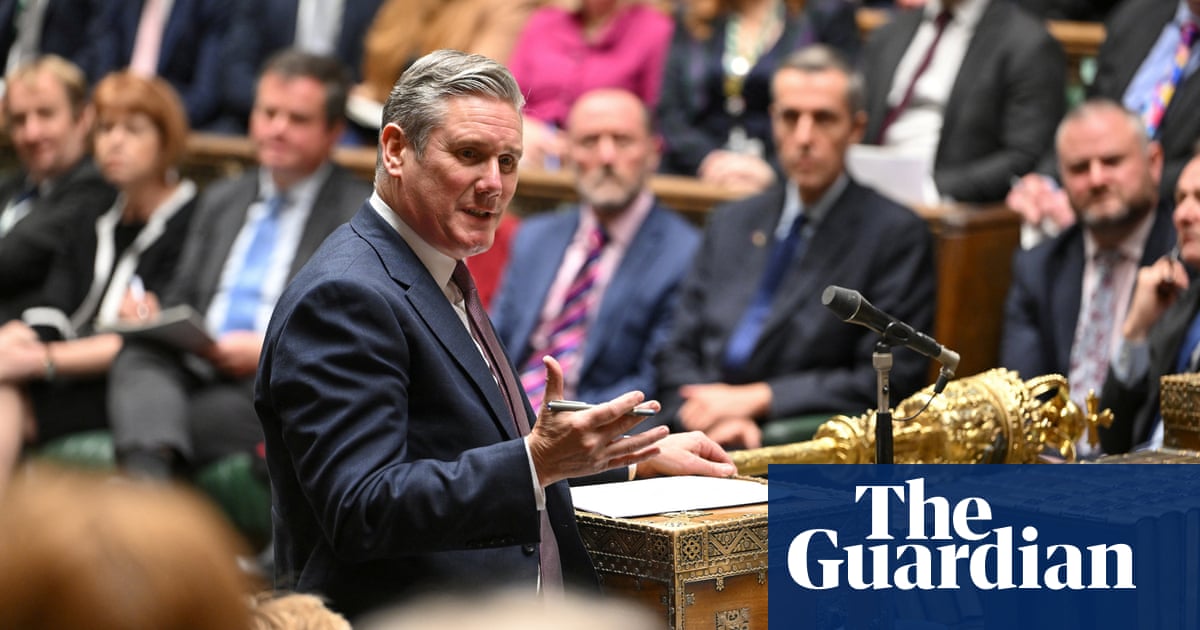
Government plans to make MPs vote in person during the coronavirus crisis have been condemned as “beyond a farce” amid concerns they will discriminate against shielding politicians and threaten the lives of staff.
Jacob Rees-Mogg, the leader of the House of Commons, tabled a motion on Monday preventing the resumption of virtual voting, which allowed MPs to have their say from afar during the pandemic.
If the house approves the government plan on Tuesday, MPs may have to form kilometre-long queues in order to obey physical distancing rules when voting – despite the Lords planning a move online.
The former cabinet minister Karen Bradley is leading a rebellion against the ending of the hybrid Commons proceedings, which allowed for remote voting and virtual debates.
Bradley, now the chair of the powerful procedure committee, has put forward amendments which would allow those MPs not able to travel to Westminster to keep participating in debates via video link and to vote remotely.
She has the support of the chairs of 16 other select committees including a number of former ministers.
Valerie Vaz MP, the shadow leader of the House of Commons, said: “Jacob Rees-Mogg’s discriminatory proposals would result in two classes of MPs. Those who can physically attend and those unable to owing to the government’s own rules, including having an underlying health condition or shielding responsibilities.
“The abolition of the hybrid remote parliament which allowed all MPs to take part regardless of their personal circumstances is discriminatory and would not be acceptable in any other workplace.”
Rees-Mogg defended the plan in the House political magazine, saying the total numbers on the estate “will not increase significantly”, with MPs’ staff continuing to work from home.
“For those MPs with underlying health conditions who have been told to shield or are receiving specific government advice about their health, the government is working with the house authorities to see how they can continue to contribute to proceedings,” he wrote.
But the plans, which are still being risk assessed, have drawn criticism from pressure groups and politicians. The Electoral Reform Society said: “If this goes ahead, it is beyond a farce. It is unacceptable when there is currently a safe, secure and speedy option for voting available: remote/digital voting. MPs have already used it, and it works.
“Since some MPs are shielding and are not safe to travel in person, these plans – if confirmed – pose a real threat for democratic representation and political equality.”
Senior Tories including Robert Halfon, the chair of the Commons education select committee, who is currently shielding, have called for virtual proceedings to continue for those who need them.
The Liberal Democrat MP Jamie Stone tweeted: “I’m a carer for my wife. You’re asking me to choose between the health of my family and abiding by your poxy stubbornness. I choose to fulfil my duties as a husband and family man.”
Dame Margaret Hodge, the Labour MP for Barking, said she was “furious” that she was being “denied the right to vote” on Tuesday because she was deemed vulnerable.
She accused Boris Johnson of being on a “mission to end” digital voting, tweeting: “This damaging move will limit accountability & create a toothless parliament. It means MPs in the ‘vulnerable’ category will be rendered voiceless & it will completely distort votes.”
The government’s motion requires voting to take place in person at the Palace of Westminster and that MPs must follow Public Health England guidance.
The mechanics of voting would then be left to the Commons Speaker, Sir Lindsay Hoyle, to set out, with parliamentarians having to avoid the narrow division lobbies.
He has described a single file of MPs snaking through parliament as a “supermarket queue” that will lead through the centre of the chamber to the dispatch box.
Unions said the plans will put parliamentary staff at risk from the virus and urged the government to publish any risk assessment of the plans.
Amy Leversidge, the FDA union’s assistant general secretary, said Rees-Mogg’s article revealed that “risk assessments are being conducted”. “It is shameful that with less than 24 hours to go the government are still scrambling to work out how parliament can return safely,” she said.
The prime minister’s official spokesman said MPs who needed to shield “should continue to do so” and informal arrangements such as pairing would be in place to allow this.












